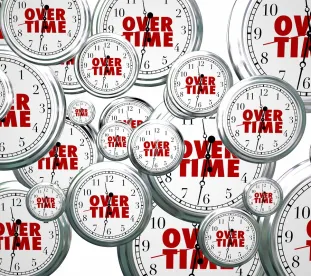On October 30, 2017, the U.S. Department of Labor (DOL) and the Texas AFL-CIO both filed Notices of Appeal in a highly-watched case involving the invalidation of controversial federal overtime regulations that had been scheduled to go into effect on December 1, 2016.
The appeal notices both relate to a summary judgment ruling issued by a federal judge in Texas on August 31, 2017, which invalidated the proposed regulations. The Texas AFL-CIO also is appealing the denial of a motion it filed to intervene in the Texas litigation. The appeals will be heard by the U.S. Court of Appeals for the Fifth Circuit, although it is likely that the DOL soon will file a motion to stay these appeals because it again is in the process of developing revised overtime regulations.
The DOL issued the controversial proposed regulations during the Obama administration. If they had become effective, the regulations would have more than doubled the minimum salary requirement for the major white-collar exemptions under the Fair Labor Standards Act (FLSA) from $455 per week to $913 per week. Annualized, that would have been an increase in the salary threshold from $23,660 per year to $47,476 per year.
Judge Amos L. Mazzant III, a federal judge for the Eastern District of Texas, issued a temporary injunction blocking the implementation just before Thanksgiving 2016. While that temporary injunction ruling was on appeal to the U.S. Court of Appeals for the Fifth Circuit, Mazzant then issued his summary judgment ruling at the end of August 2017 invalidating the regulations.
As a final judgment, the summary judgment ruling mooted the appeal of the preliminary injunction. Notably, however, the Trump DOL already had indicated during the appeal process that it would be issuing a Request for Information(RFI) with the intent to issue new proposed regulations.
A little more than a month prior to the summary judgment ruling, the DOL then published a detailed RFI in the Federal Register, in which it asked several questions seeking input regarding the appropriate salary level (or levels) and the duties tests for the white-collar exemptions. The comment deadline was September 25, 2017, and more than 140,000 comments were submitted.
Although Secretary of Labor Alexander Acosta has indicated that he would favor a salary threshold that annualizes to somewhere between $30,000 and $35,000 per year, as opposed to the $46,476 number supported by the Obama administration, the DOL’s filing of the appeal in this litigation is not a surprise. Rather, it is consistent with the approach previously taken by the U.S. Department of Justice (DOJ), which represents federal agencies such as the DOL in this type of litigation.
More specifically, when a federal district court finds that an agency has exceeded its authority in issuing a new rule, the DOJ will file an appeal while the federal agency it represents again engages in the rulemaking process to replace the rule that the federal district court found to be deficient. The DOJ then will move for a stay arguing that the appeal may become unnecessary due to the anticipated issuance of the new rule. The DOJ also will likely seek a ruling from the appellate court or the district court that vacates or moots the summary judgment decision so that there will no longer be a ruling limiting the DOL’s authority.
Although the party plaintiffs in the overtime litigation are unlikely to oppose any such maneuvering by the DOJ and DOL, the involvement of the Texas AFL-CIO as a proposed intervenor could create some drama. Stay tuned.




 />i
/>i

